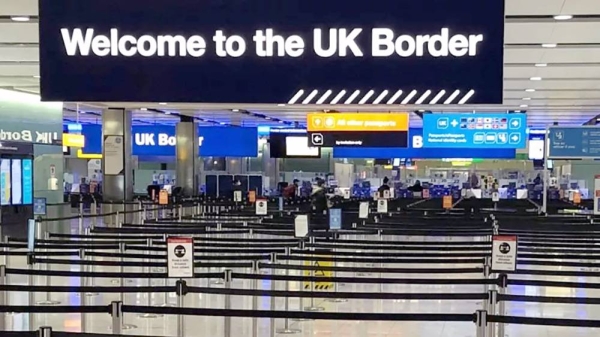
The number of EU citizens searching for work in Britain has fallen by more than a third since Brexit, according to a study that exposes the impact on UK employers as they struggle to recruit staff.
Figures from the jobs website Indeed show searches by EU-based jobseekers for work in the UK were down by 36% in May from average levels in 2019. Low-paid jobs in hospitality, the care sector and warehouses recorded the biggest declines at 41%.
In a report that suggests tougher post-Brexit immigration rules are having a distinct impact above and beyond the fallout from the Covid-19 pandemic, the sharp decline in interest among EU jobseekers was not replicated in other countries.
Clicks on job adverts from non-EU countries fell by just 1%, and searches from Ireland, whose citizens retain the right to live and work in the UK after Brexit, were down by a similar amount over the same period.
The snapshot comes as UK businesses struggle to find enough staff to fill growing numbers of vacancies after hospitality venues and retail outlets were allowed to reopen.
Business leaders have warned that a lack of overseas workers is likely to put a brake on the UK’s economic recovery from Covid-19 and could feed through to higher prices for goods and services as staff shortages force them to offer high wages to lure new recruits.
Government-backed studies have shown that EU migrants do not suppress UK workers’ wages, and official labour market figures are yet to demonstrate a materially higher rate of wage growth in 2021 than usual, but businesses in some sectors say the lack of EU migrants is leading them to put up pay to attract British workers in their place.
Tim Martin, the Brexit-supporting boss of JD Wetherspoon, has called on the government to launch a visa scheme for EU workers to help pubs and restaurants recruit more staff.
About 1.3 million non-UK workers are estimated to have left the UK since late 2019 as many returned to their country of birth to see out the pandemic at home. Ongoing travel controls and the risk to public health continue to discourage some overseas workers, but Indeed said Brexit had also played a role.
It said jobseeker interest from non-EU countries, led by Commonwealth nations such as India and the former British territory of Hong Kong, was rising but not by enough to offset falling EU interest.
Official figures have shown a reduction in the numbers of EU citizens coming to Britain since the Brexit vote in 2016, but there has been a steady rise in non-EU workers arriving in their place.
Jack Kennedy, a UK economist at Indeed, said employers in higher-paying sectors such as tech, science and engineering were managing to offset falling EU jobseeker interest with staff from the rest of the world.
“But lower-paid roles are not receiving the same attention from foreign workers as they did only two years ago. It means domestic workers may be required to fill the gaps,” he said.
“However, with many sectors, including hospitality, already struggling to recruit all the staff they need, higher salaries may be required to attract UK workers to fill those roles.”












